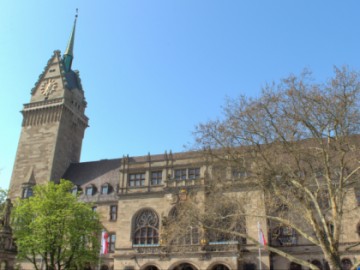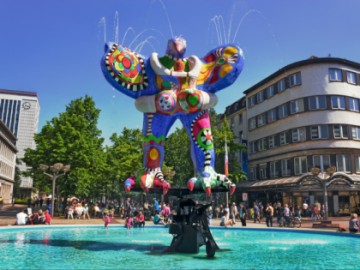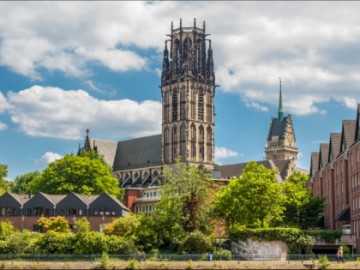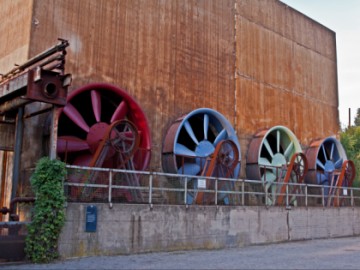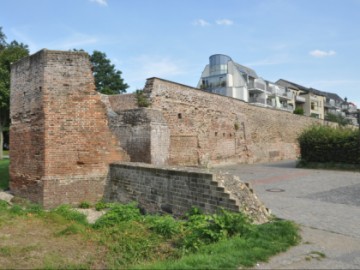Duisburg has a history of more than a thousand years. According to archaeologists, the permanent settlement on the site dates back to the first centuries AD. The convenient location near the fords across the Rhine and Ruhr rivers made it a tasty morsel for the invaders. In 420 Franks made the settlement their colony. In the IX century the Vikings appeared here: the first written mention of Duisburg is connected with their attack in 883. In the X century the residence of the emperor was built in the city. Alas, the displacement of the bed of the Rhine in around 1000 AD deprived the city of its main advantages. Duisburg lost its importance as a trading center and turned into a quiet rural town. The rise of the textile and tobacco industries in the XVIII century again made the city a major industrial center. In the XIX century the list of Duisburg’s core industries was added by the steel industry. The construction of the canal between the Rhine and the Ruhr and the rail network also returned its historical role of a major transport hub to the city.
Although Duisburg still maintains its position as a leading industrial center of Germany, in recent years it has seriously tackled renewal of its image just like other large cities of the Ruhr area. In the XXI century, being ahead of rivals with the production of iron and steel or freight volume is not enough for the city. It actively fights for reputation as a cultural center, attractive for tourists of all ages. With its monuments, museums, parks, theaters, festivals Duisburg will not let you get bored.
Be sure to visit the bustling port of Duisburg. You not only can see ships from all over the world, but can also have a delicious lunch in it. It is in the harbor that the best restaurants, cafes and bars of the city are concentrated. You will certainly find local dishes typical of the Ruhr region in them. Rheinischer Sauerbraten is the most popular dish. It is roast meat soaked in a mixture of vinegar, wine, herbs and spices for a few days before cooking. The selection of the spices may differ depending on the recipe, but most often the cooks put juniper berries, bay leaf, cloves, black pepper and mustard seeds in the marinade. By the way, Rheinischer Sauerbraten was prepared from horse meat in the past, but now mostly beef and rarely pork is used. The meat is served with sweet and sour sauce, with a lot of raisins. Potato dumplings are usually served as garnish, but you can also have boiled potatoes, noodles and red cabbage. Soups, homemade or other sausages and cold meats are popular here. And of course, beer is a must try in Duisburg: one of the country’s largest breweries, König-Brauerei, is in Duisburg, in which the famous variety König Pilsener is brewed.
CityPalais, a cultural and entertainment complex, opened not far from the port a few years ago. The local casino is one of the most modern gambling venue in Germany. There is a huge shopping center, Forum Duisburg, for shoppers. Its roof is decorated with a gold 65m-high ladder - one of the new symbols of the city.
If you come to Duisburg with children, be sure to visit the local zoo. It's the only place in Germany where koalas live! Forums with reviews from Duisburg visitors choke enthusiasm about these cute, plush toy-like animals. The other memorable entertainment places of the Zoo include the Dolphinarium and the authentic Chinese Garden, a gift from the Chinese city of Wuhan- the twin city of Duisburg.
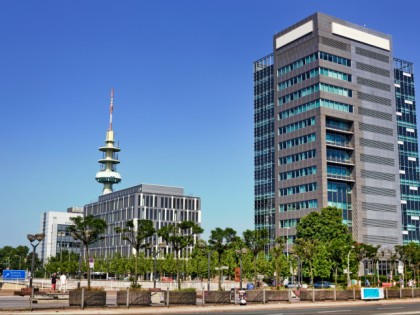
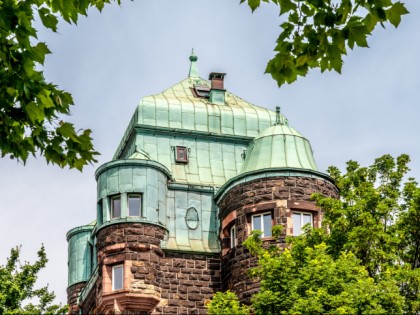
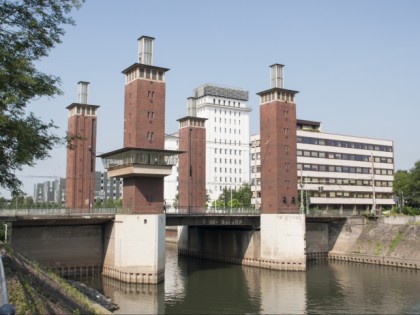
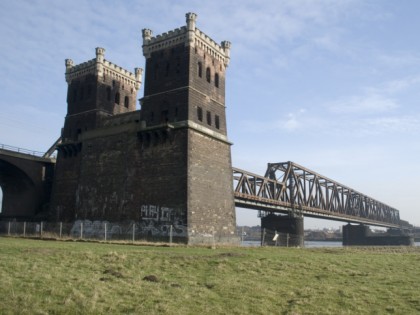
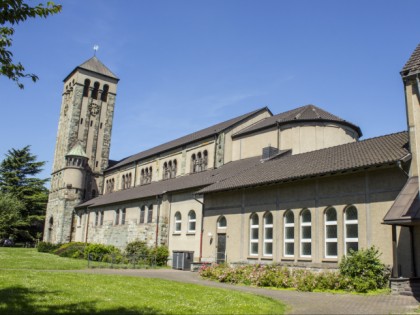
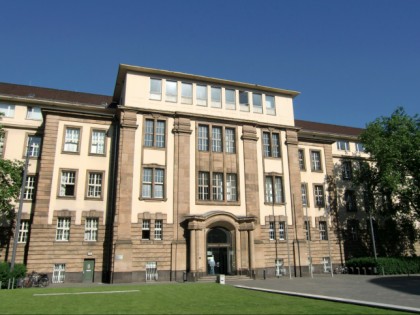
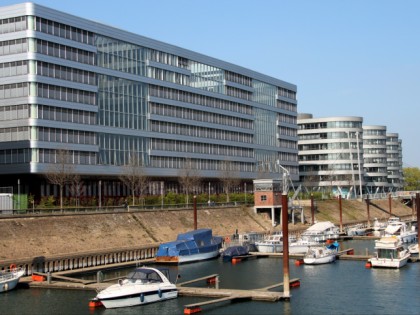
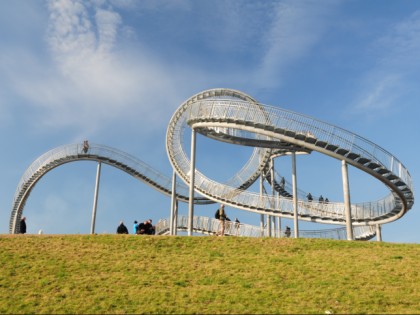
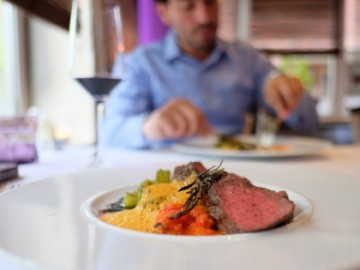
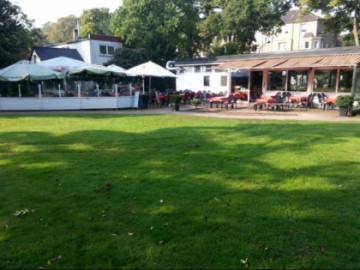
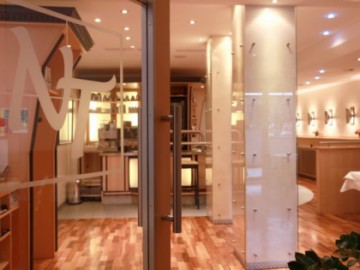

 Parks and recreation
Parks and recreation
 Architectural Monuments
Architectural Monuments
 Other places
Other places
